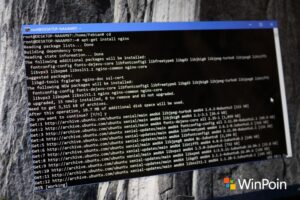


Combined with some light shell scripting on the command-line interface, you’re able to generate useful data, without needing to load up your favorite programming language’s package repository. Their uniqueness makes them quite powerful. Universally unique identifiers are more robust than a random number. This time you’ll see output like can use the same approach to save any of the other examples in this tutorial to files. You’ll see output similar to the following, although your UUID will be aren’t real email addresses that you can validate, but you can tweak the output one more time, and swap the second uuidgen for a disposable email address domain, like ( ], you will not only have a list of realistic-looking data, but it will be a list email addresses you could actually use or monitor in tests. Out of the box, uuidgen will generate a random UUID each time it runs.Įxecute the following command in your terminal: To generate a single UUID, run the uuidgen command without any arguments.
#BASH UUID GENERATOR INSTALL#
Next install the uuid-runtime package using the apt package manager:
#BASH UUID GENERATOR UPDATE#
On Ubuntu and Debian systems, install the uuid-runtime package.įirst, update your system’s list of available packages using the apt update command: If it’s not, you can install it through your package manager. The uuidgen command is often already installed on Unix-like operating systems like Linux and macOS. In this tutorial you’ll use uuidgen and some shell scripting to generate UUIDs and some sample data. To generate universally unique identifiers from the command-line interface, you can use the uuidgen utility, By default uuidgen will generate a ran dom-based UUID if. Need a bunch of random string? UUIDs will be unique, making them easy to track down as they move through a system. There are two types of UUIDs which uuidgen can generate: time-based UUIDs and random-based UUIDs. Because of their uniqueness, they come in handy in situations where an auto incremented primary key can fall short.īecause of their uniqueness, UUIDs are well suited for generating test data. The result is a pattern of 8-4-4-4-12 lower case characters a-f0-9.Universally unique identifiers (UUIDs) are 128-bit numbers that are accepted as being unique on the local system they are created on as well as among the UUIDs created on other systems in the past as well as the future. By specifying fields 2-9 independently, we control the hyphens and strip off the index/offset counter that 'od' prefixes each line of output with. An easy way to generate UUIDs in Linux is to use the uuidgen utility on the Linux/Unix command line. Head -n (where n>0) extracts just one line of the previous output.Īwk sets the OutputFieldSeparator to be a hyphen everywhere a comma occurs in the print statement.

Od (octal dump) has a hex output switch (-x) producing 16 bytes per line. dev/random and /dev/urandom are kernel random generators. Of course, head -1 could be replaced with head -_other-value_ | tail -1 too. I am curious if this is prone to non-uniqueness, but I have not been 'bit'ten in the last 10 years. Tested on SnowLeopard, Red Hat Valhalla, Solaris 9 4/04 and newer successfully. This also bypasses any neccessity to install external modules for Perl or Python. I have found this script "one-liner" useful where uuidgen is not available.


 0 kommentar(er)
0 kommentar(er)
